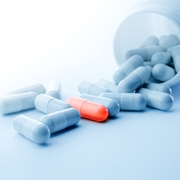Information you need to live a happy, worry-free retirement!
Test Your Knowledge of Antibiotics

Antibiotics save lives and are critical drugs for treating various infections, but overuse can lead to antibiotic resistance, one of the most urgent threats to the public’s health.
In 2019, U.S. Antibiotic Awareness Week is Nov. 18 through 24. Test your knowledge by answering the questions below.
Q. How many people die each year because of antibiotic resistance?
A. Each year, 2 million people are infected with bacteria that are resistant to antibiotics, resulting in at least 23,000 deaths.
Q. True or false: antibiotics are effective against viruses, such as the common cold or flu.
A. False. Antibiotics only cure certain infections due to bacteria. Antibiotics do not work on viruses, such as those that cause colds, flu, bronchitis, or runny noses, even if mucus is thick, yellow or green. Taking antibiotics when you have a virus may do more harm than good. Taking them when not needed can increase your risk of getting an infection later that may resist antibiotic treatment.
Q. True or false: antibiotics can be used to treat pneumonia, sepsis, urinary tract infections (UTIs) and strep throat.
A. True. Since bacterial pneumonia and sepsis can be deadly, they should be treated with antibiotics. Antibiotics usually are the first line treatment for UTIs. Antibiotics, if taken within 48 hours of the onset of strep throat, can reduce the duration and severity of symptoms, as well as the risk of complications and the likelihood the infection can spread to others.
Q. Which of the following are antibiotics?
- Tetracycline
- Sulfonamides
- Penicillin
- All of the above
A. The correct answer is “D. All of the above.” There are well over 100 antibiotics, but the majority comes from only a few types of drugs, including the three here.
Q. Which of the following are common side effects of antibiotics?
- Fungal infections
- Digestive problems
- Photosensitivity
- Teeth and bone staining
- All of the above.
A. The correct answer is “E. All of the above.” Common side effects of antibiotics range include soft stools, short-term diarrhea, upset stomach, nausea, loss of appetite, fungal (yeast) infections or oral thrush and sensitivity to light. Antibiotics such as tetracycline and doxycycline can cause permanent tooth staining in children who teeth are still developing — mostly those younger than age 8. Those aren’t the only reactions — others include dizziness and rash. While most of the side effects associated with antibiotics are not life-threatening, antibiotics can cause severe side effects, such as anaphylaxis. When you need antibiotics for a bacterial infection, then the benefits usually outweigh the risks. When antibiotics aren’t needed, they won’t help you, and the side effects could still cause harm.
True or false: Antibiotic resistance means the body is becoming resistant to antibiotics.
A. False. Antibiotic resistance does not mean the body is becoming resistant to antibiotics; it means bacteria develop the ability to defeat the antibiotics designed to kill them. When bacteria become resistant, antibiotics cannot fight them, and the bacteria multiply. Some resistant bacteria can be hard or impossible to treat and can spread to other people.
Q. How many medication-related visits to the emergency department are due to reactions from antibiotics?
- One out of five
- One out of 10
- One out of 100
- One out of 1,000
A. The answer is “A.” Reactions from antibiotics cause one out of five medication-related visits to the emergency department. The most common cause of medication-related emergency department visits in children are reactions from antibiotics.
Be Antibiotics Aware
The Centers for Disease Control and Prevention (CDC) advises patients and their families to use antibiotics only when necessary to further reduce antibiotic resistance and the spread of superbugs and to protect patients from side effects from antibiotics.
The CDC urges you to ask your doctor, nurse, or pharmacist about the best way to feel better. If you need antibiotics, take them exactly as prescribed, and talk with your doctor if you develop any side effects, especially diarrhea, which could be a Clostridioides difficile (C. difficile or C. diff) infection, which needs to be treated.
The CDC also encourages you to do your best to stay healthy and keep others healthy by cleaning hands, covering coughs, staying home when sick, and getting recommended vaccines, such as the flu vaccine.
For more information, visit the CDC’s antibiotics use page.





